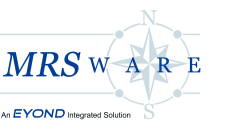Unsafe attachments
Quarantine emails that have potentially unsafe attachment files that end with any of the following extensions: exe, cab, msi, app, bat, dll, hta, inf', js, jse, lnk, ocx, pif, reg, scr, url, vbs, ws, wsc, wsf
This filter is strongly recommended!
Unsafe attachments inside of archive files
Quarantine emails that have a zip, rar or 7z attachment that contains a single potentially unsafe file inside. Potentially unsafe attachments include files with the following extenions: exe, cab, msi, app, bat, dll, hta, inf, js, jse, lnk, ocx, pif, reg, scr, url, vbs, ws, wsc, wsf
This filter is strongly recommended!
Quarantine emails that have zip, rar or 7z attachments that are corrupt or that require a password to extract.
If someone is trying to send you an archive file that contains a file matching any of these criteria, it is likely to be quarantined in the Spam Filter Portal and require your company's designated Spam Coordinator to release it.
There is an ongoing and continuously increasing rise in ransomware spam mail across the Internet. It is never possible for spam filtering to catch all malicious attachments on emails. Be sure you know the sender before opening any attachment. Never open attachments with .exe (or any of the executable extensions listed above).
Also be aware even a person you know very well can have their email hijacked to send out spam... That trusted sender might still be sending you a malicious attachment.
Use an online backup service that has revision control to keep your files safe, even when they are destroyed on your personal computer. Revision control keeps multiple copies of previous versions of files (just like we do in File Share) so that you can always open a version from before the malicious program destroyed your files

 RSS Feed
RSS Feed